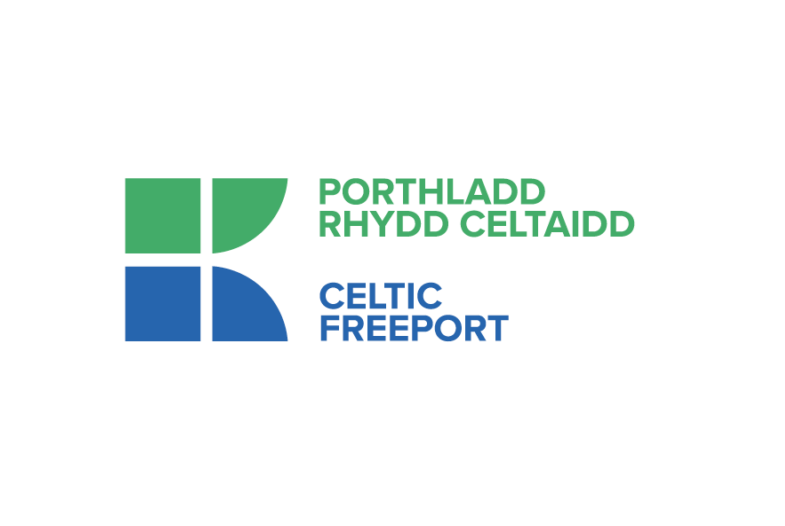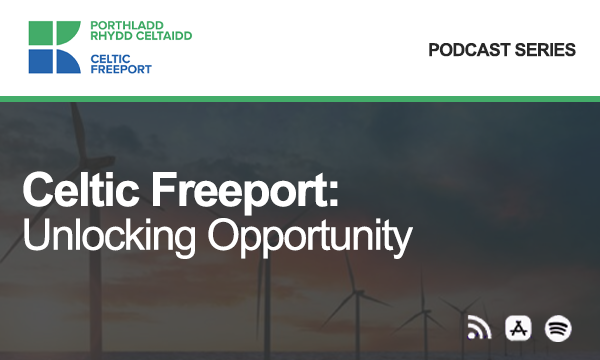Senior figures across Wales’ decarbonisation and industrial sectors are calling for greater urgency and clearer accountability in moving from strategy to delivery.
With the publication of the UK Government’s Industrial Strategy welcomed as a step forward, industry leaders involved in the Celtic Freeport initiative say the challenge now lies in ensuring that ambition is matched with action particularly around infrastructure, investment and coordinated delivery.
Speaking on the Celtic Freeport: Unlocking Opportunity podcast, Ben Burggraaf, CEO of Net Zero Industry Wales, said there is a strong business case for investment in South Wales, but warned that the next phase must be underpinned by clear governance and a joined-up approach.
“We need to be clear about who is going to deliver what,” said Ben.
“We talk about industrial strategy zones and action plans, but who owns them, who drives them, and who is accountable for delivering the infrastructure and investment we need? These are large-scale capital programmes. It needs proper structure and governance to actually deliver.”
Ben pointed to analysis showing the potential for £36 billion of investment over 25 years, generating an estimated £29 billion in GVA. But he said investment of that scale would only materialise if supported by certainty, coordination, and a strong partnership between government and the private sector.
The Celtic Freeport, which includes the ports of Milford Haven and Port Talbot, is viewed by many as a key vehicle to drive industrial decarbonisation and clean energy transition across South Wales. Together, the area accounts for over 70% of Wales’ industrial emissions, meaning progress here could have significant national impact.
Luciana Ciubotariu, CEO of Celtic Freeport, said the priority now must be on accelerating delivery, particularly for emerging technologies such as floating offshore wind, sustainable fuels, hydrogen , and carbon capture.
“We need to be much more coordinated and faster in planning and permitting,” said Luciana.
“Currently it’s fragmented across multiple agencies, which causes delays and uncertainty. Investors need to see a stable policy environment, with mechanisms that give them confidence their investments will be supported over time.”
Luciana also emphasised the importance of practical steps such as upgrading the electricity grid, developing hydrogen-ready infrastructure, and ensuring local communities and skills providers are brought into the transition.
Aled Davies, Marine Superintendent at Dragon LNG, echoed the call for clarity around responsibility and next steps. He said the Freeport initiative provided a strong platform for integrating traditional energy infrastructure with new low-carbon projects, but that delivery would depend on coordinated action.
“We’ve got everything lined up,” said Aled.
“The dominoes are ready to fall, but we need the right people around the table making the right decisions. Let’s get the spotlight on South Wales and get these projects across the line.”
He highlighted the importance of bridging investment to support existing industries while new technologies and infrastructure are developed. Dragon LNG, which currently supplies up to 10% of the UK’s gas demand, is investing in on-site renewable energy and working with partners on a carbon capture initiative.
Aled described these efforts as an example of how traditional energy can sit alongside the transition to renewables.
Ben added that the Freeport should also play a role in giving industries across the region greater visibility on future opportunities. This, he said, would help build the confidence needed to invest in manufacturing capacity, supply chains, and long-term skills development.
He said:
“My key ask for government is: who works with the private sector and who is actually going to put a name on the list saying ‘I'm going to be accountable and responsible for delivering these very ambitious and large infrastructure projects’? That's the way we should see it.”
Listen to the discussion in the Celtic Freeport: Unlocking Opportunity podcast episode How the Celtic Freeport is Powering Regional Decarbonisation here










